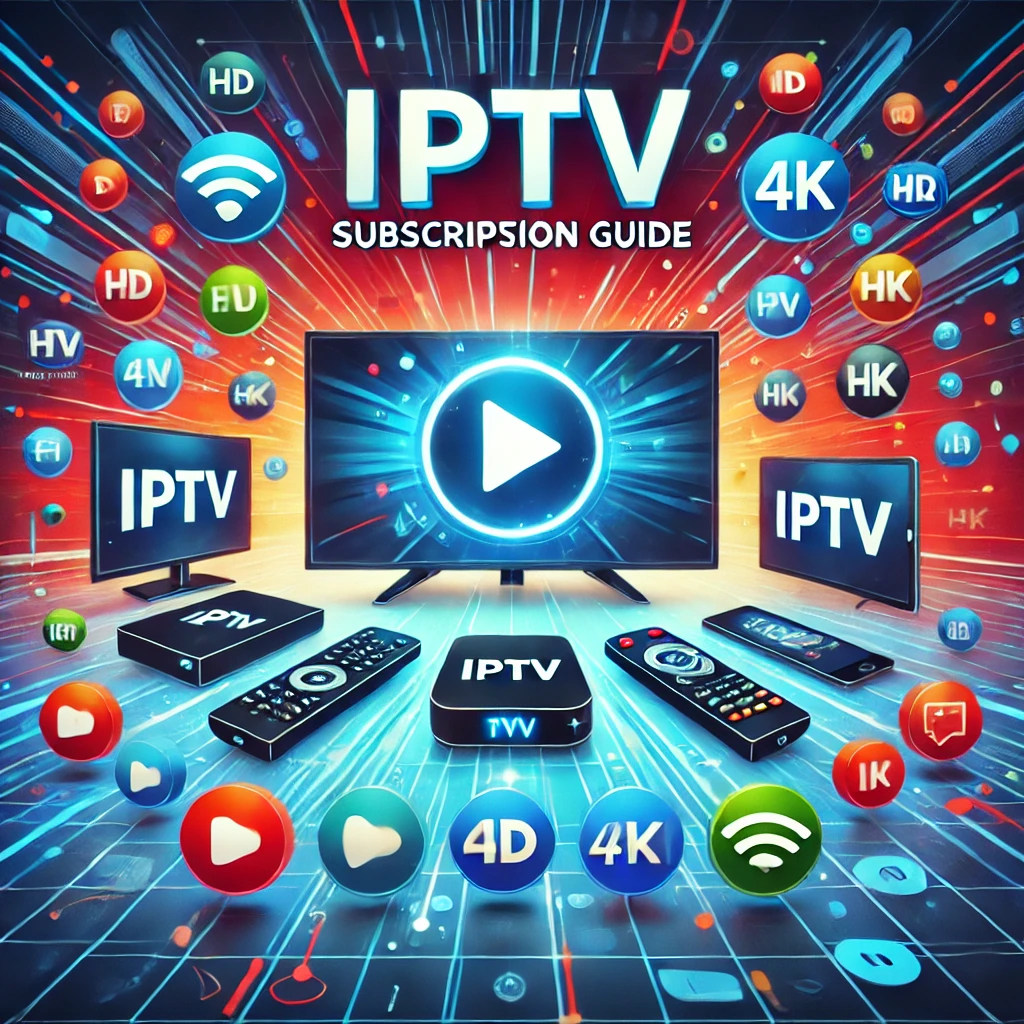The way we consume television content has undergone a significant transformation over the past few years. Traditional broadcasting methods are gradually making way for more flexible and internet-based solutions. One such innovation that has gained considerable traction is Internet Protocol Television (IPTV). This article delves into the world of IPTV subscriptions, exploring what they are, their benefits, and how to choose the right service for your needs.
What is IPTV?
IPTV stands for Internet Protocol Television. Unlike traditional television broadcasts that use satellite signals and cable formats, IPTV delivers television content over internet protocols. This method allows for streaming media in smaller batches, directly from the source, providing a seamless viewing experience.
Key Differences from Traditional TV:
- On-Demand Content: IPTV enables users to access content whenever they want, unlike scheduled programming on traditional TV.
- Interactive Services: Users can pause, rewind, or fast-forward content.
- Multiple Device Support: IPTV services can be accessed on various devices like smartphones, tablets, smart TVs, and computers.
Benefits of IPTV Subscriptions
- Wide Range of Content:
- Diverse Channels: Access to international channels and niche programming.
- Specialized Content: Options for specific interests like sports, movies, or documentaries.
- On-Demand Viewing:
- Flexibility: Watch shows and movies at your convenience.
- Catch-Up TV: Access content you might have missed during its original broadcast.
- High-Quality Streaming:
- Enhanced Resolution: Many IPTV services offer HD and even 4K streaming options.
- Stable Connection: With a good internet connection, buffering is minimal.
- Cost-Effective:
- Affordable Plans: Competitive pricing compared to traditional cable or satellite services.
- No Hidden Fees: Clear subscription models without unexpected charges.
Types of IPTV Services
- Live IPTV:
- Streaming live television broadcasts as they happen.
- Ideal for watching news, live sports events, and real-time programming.
- Video on Demand (VOD):
- Access to a library of videos that you can watch at any time.
- Includes movies, TV series, and special programming.
- Time-Shifted Media:
- Allows users to watch previously aired content.
- Features like catch-up TV and start-over TV fall under this category.
Choosing the Right IPTV Subscription
1. Legal Considerations:
- Authorized Providers: Ensure the service is licensed to distribute the content.
- Compliance: Check if the provider adheres to broadcasting regulations in your country.
2. Service Quality and Reliability:
- Server Stability: A reliable service should have minimal downtime.
- Streaming Quality: Look for services that offer HD or higher resolutions.
3. Device Compatibility:
- Supported Devices: Confirm that the service works on your preferred devices.
- User Interface: A user-friendly interface enhances the viewing experience.
4. Customer Support:
- Availability: Opt for providers with responsive customer service.
- Support Channels: Multiple contact methods like email, chat, or phone are beneficial.
Legal Aspects of IPTV
While IPTV technology itself is legal, it’s crucial to distinguish between legitimate services and unauthorized providers.
Risks of Illegal IPTV Services:
- Legal Consequences: Using unlicensed services may lead to fines or legal action.
- Security Threats: Unauthorized providers might expose users to malware or data breaches.
- Service Reliability: Illegal services often have unstable connections and poor customer support.
Importance of Using Legitimate Services:
- Quality Assurance: Licensed providers ensure high-quality content and streaming.
- Ethical Consumption: Supporting creators and the industry by paying for content.
- Peace of Mind: Avoid legal troubles and enjoy a secure viewing experience.
Setting Up Your IPTV Subscription
Required Equipment:
- Internet Connection: A stable broadband connection with sufficient speed.
- Compatible Device: Smart TV, streaming box (like Roku or Apple TV), computer, or mobile device.
- IPTV Application: Software provided by your IPTV service to access content.
Installation Process:
- Sign Up: Choose a subscription plan that fits your needs.
- Download the App: Install the IPTV application on your device.
- Login Credentials: Use the provided username and password to access the service.
- Configuration: Follow any setup instructions to customize your viewing experience.
The Future of IPTV
Technological Advancements:
- 5G Integration: Faster internet speeds will enhance streaming quality.
- Interactive Features: More personalized content and interactive applications.
- Artificial Intelligence: Improved content recommendations and user interfaces.
Impact on the Entertainment Industry:
- Shift in Consumption Habits: On-demand viewing is becoming the norm.
- Content Creation: Increased demand for high-quality, original programming.
- Global Access: Breaking down geographical barriers to access content worldwide.
Conclusion
Abonnement IPTV offer a modern, flexible, and efficient way to consume television content. With the ability to access a wide range of programming on-demand and across multiple devices, IPTV represents the future of television. However, it’s essential to choose legitimate services to ensure a high-quality experience while staying within legal boundaries. As technology continues to evolve, IPTV is poised to play a significant role in shaping the future of entertainment.



